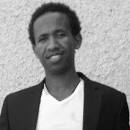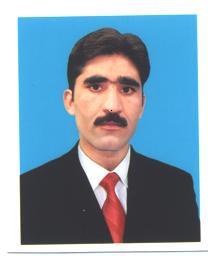Day :
Keynote Forum
Grmanesh Gidey Kahsay
Department Of Minning Engineering,
Keynote: Concurrent Engineering Challenges and Resolution Mechanisms from Quality Perspectives

Biography:
Grmanesh GideyKahsay,KÜTAHYA DUMLUPINAR ÜNÄ°VERSÄ°TESÄ° ,KÜTAHYA, Tel: (274) 443-4343, Fax: (274) 265-2133, Email: basin@dpu.edu.tr, Turkey
Abstract:
Abstract
In modern technical engineering applications, quality is defined in two ways. The first one is that quality is the parameter that measures a product or service’s characteristics to meet and satisfy the pre-stated or fundamental needs (reliability, durability, serviceability). The second one is the quality of a product or service free of any defect or deficiencies. The American Society for Quality (ASQ) describes quality as a pursuit of optimal solutions to confirm successes and fulfillment to be accountable for the product or service's requirements and expectations. This article focuses on quality engineering tools in modern industrial applications. Quality engineering is a field of engineering that deals with the principles, techniques, models, and applications of the product or service to guarantee quality. Including the entire activities to analyze the product’s design and development, quality engineering emphasizes how to make sure that products and services are designed and developed to meet consumers’ requirements. This episode acquaints with quality tools such as quality systems, auditing, product design, and process control. The finding presents thoughts that aim to improve quality engineering proficiency and effectiveness by introducing essential quality techniques and tools in some selected industries.
Keywords: Essential quality tools, Quality systems and models, Quality Management Systems, and Quality assurance.
Keynote Forum
Shahid Ali, PhD
Department of Economics & Development Studies, University of Swat
Keynote: Title: E-BABE- Economic Globalization, Institutional Quality and Environmental Quality: Cross Country Analysis

Biography:
Dr. Shahid Ali has completed his PhD from Department of Economics, University of Peshawar. He is Assistant Professor at Departmetn of Economics and Developmetn Studies, Univesity of Swat. He has published 37 papers in reputed journals such as Energy Economics, Journal of Environmental Management,
Abstract:
Abstract
Using an updated data set on economic growth, detailed measures of globalization, institutional development and environmental quality provide some evidence regarding the dependency of environmental quality on the economic globalization of the sample countries. The study contributes to a growing literature on the importance of existence of complementarities between economic globalization with indicators of institutional development in affecting environmental quality. The study uses panel data from 1996 to 2019 in SAARC countries . Using CS-ARDL econometric technique for estimating non-linear regression specification that interacts a proxy of economic globalization with proxies of institutional development, this study draws some important inferences. Our results suggest that economic globalization contributing to environmental quality. However, the relationship between economic globalization and environmental quality holds only when the host country has a minimum level of certain level of institutional development. Hence, countries with week institutions suffered more the process of globalization in terms of environmental degradation.
The implication for policy sequencing is that the countries, where institutions are week, must have a strategy in place to improve their institutions.
Keywords: Economic Globalization, Institutions, Environmental Performance, Panel data
JEL Classification: C10, O10, Q5; D31
